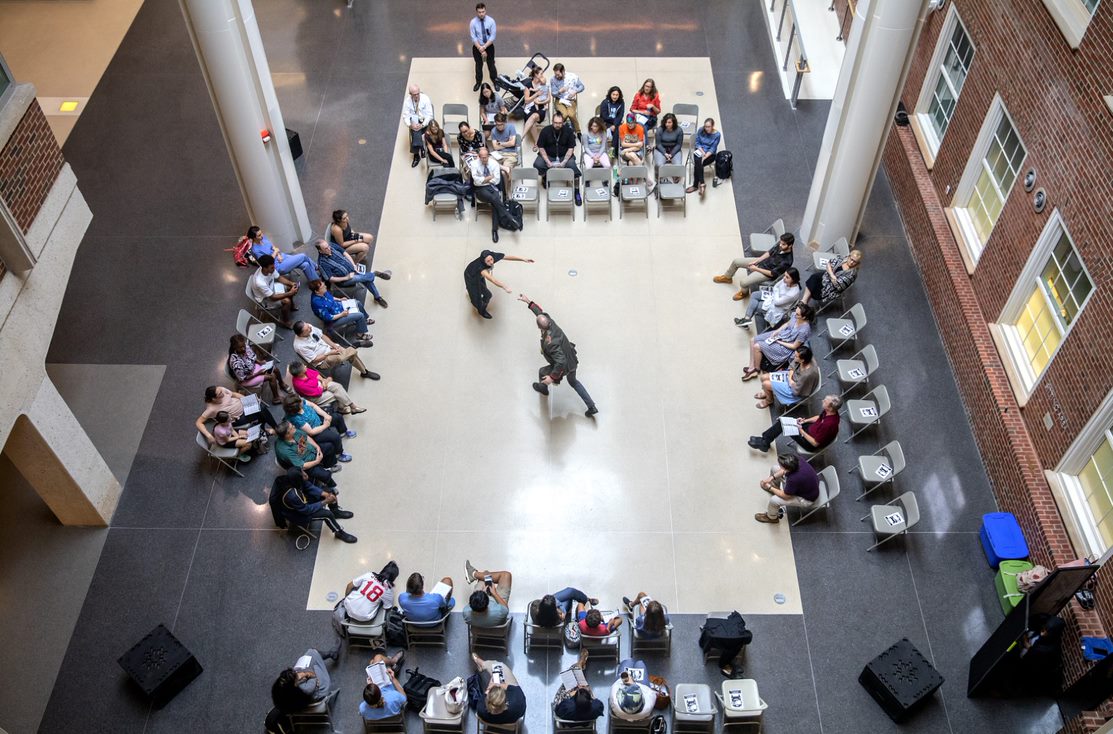
Two actors perform as part of a PlayMakers Mobile production. Image courtesy of PlayMakers Repertory Company.

Two actors perform as part of a PlayMakers Mobile production. Image courtesy of PlayMakers Repertory Company.
Long ago, theater happened everywhere, not just on stages. Plays would be performed in a wide variety of spaces like streetcorners, gardens, markets, and public squares.
PlayMakers, a theater company based in Chapel Hill, is drawing upon that theatrical tradition in their agile, one-hour PlayMakers Mobile productions in all manner of area spaces. They bring their mobile production of Shakespeare’s “The Tempest” to the Hill Library’s North Forum on Wednesday, Feb. 22 at 5:00 p.m. The free, unticketed event is open to the public.
Chelsea James, PlayMakers’ Producing Associate, says that the mobile productions activate a play in a way that engages an audience very differently than in the company’s traditional stage productions at the Joan H. Gillings Center for Dramatic Art at UNC-Chapel Hill. Bringing the play to the audience recreates the fun, lively fray of theater in public.
“Audiences would often cheer, boo, or talk back to the actors in a way that has been lost to today’s audience, where sitting in the dark and remaining completely silent is the encouraged theatre etiquette,” James says. “The PlayMakers Mobile performances hope to bring back that visceral connection that allows the actors and audiences alike to feed off the energy in the room.”
A cast of just six actors will use music, puppets, clowning, and fabric to bring Shakespeare’s “The Tempest” to life in an intimate and imaginative way at the Libraries. The North Forum will become the enchanted island where the exiled Prospero and his daughter Miranda live. Prospero summons power from the island and its strange and wonderful inhabitants to seek revenge in a surprising story of transformation, power, and mercy.
Fitting all of that into a library space in which the action will take place almost in the laps of the audience is a challenge, but it also brings a decided energy to the performance for both the players and the audience.
“Everything involved in the show—props, costumes, set pieces—all need to fit in a single van, which requires innovation,” James says. “This innovation is probably akin to how the traveling players of Elizabethan times put on shows which, like ours, utilized minimal production and only a handful of actors. Furthermore, audiences sit on every side of the playing space, so the actors are truly playing to every corner of the room.”